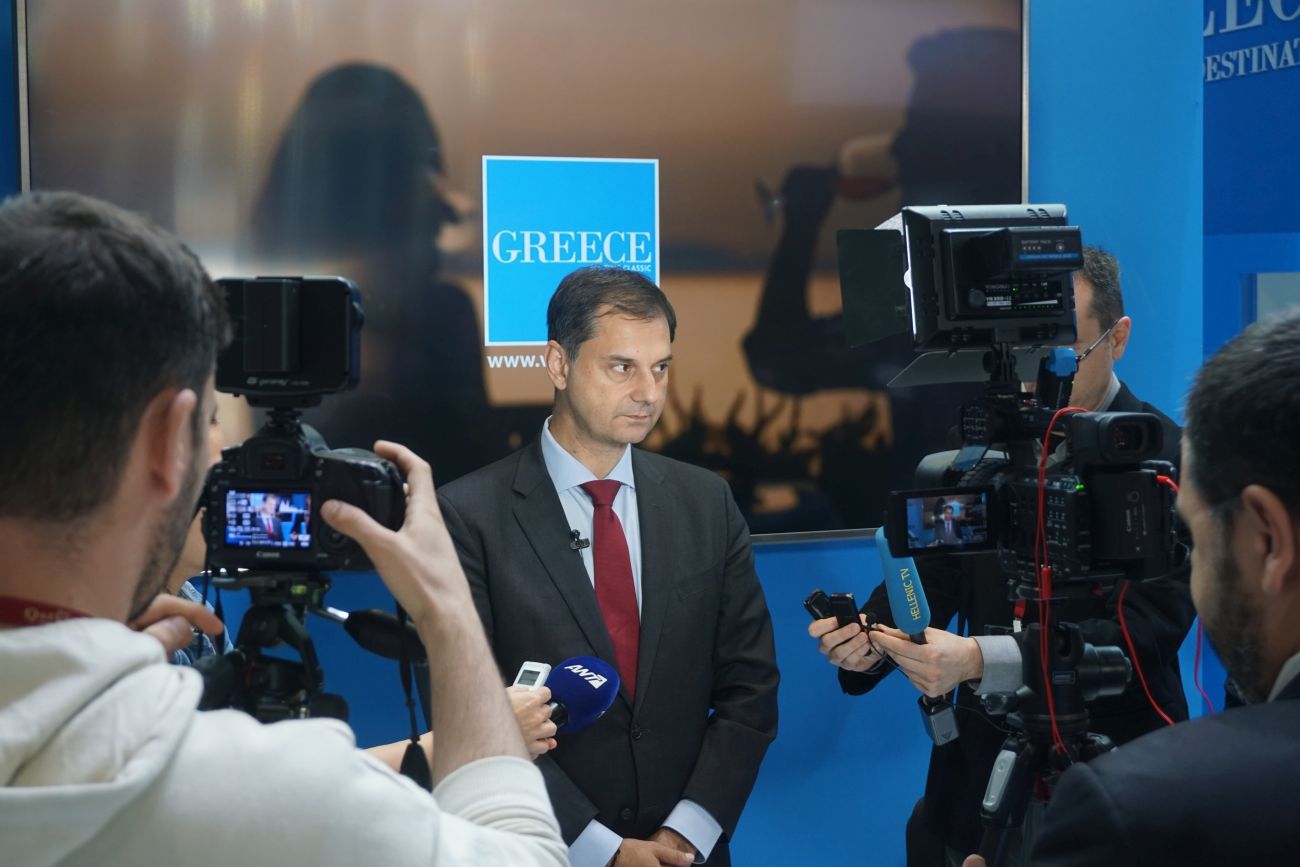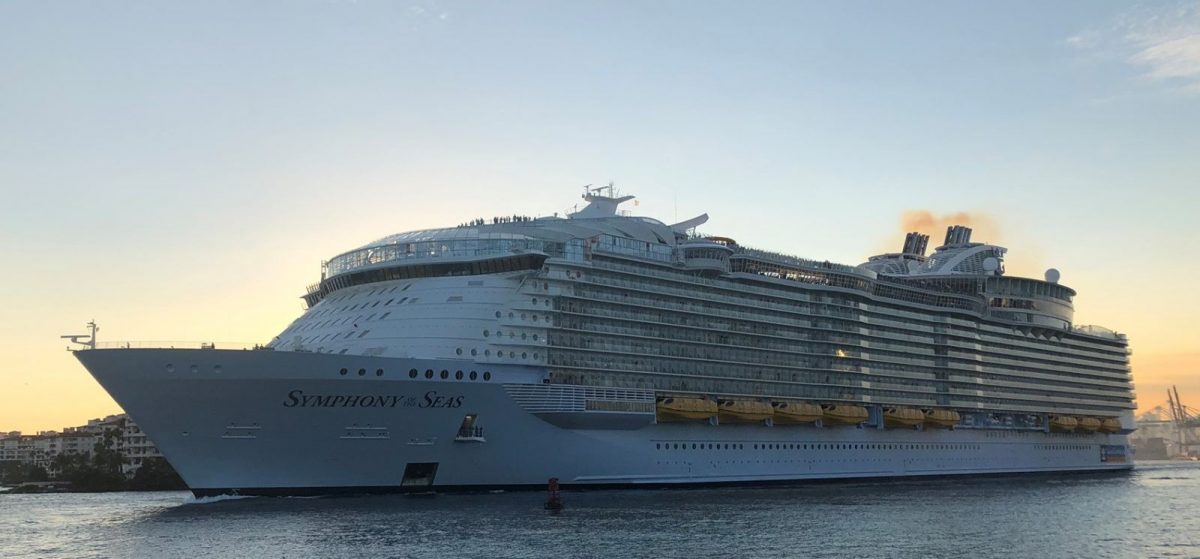Greece plays down impact of Thomas Cook and Brexit

Greece’s tourism minister Harry Theoharis was at WTM to outline the destination’s plans for 2020 and how it is reacting to recent events
How is Greece coping following the collapse of Thomas Cook?
Thomas Cook affected a lot of touristic enterprises and destinations. But we immediately took action to mitigate the effects, so we feel confident that the long-term impact will be minimised. The airline collapse happened at a time when planning for airport slots for next season was underway.
This should help in the recovery process. Of course, there are some destinations which depended much more on UK arrivals through Thomas Cook (eg Skiathos, Zakynthos), but we are actively promoting those destinations in order to replace the lost seats and are confident that we are closing the gap.
Compared to previous years, we will start actively advertising earlier than normal – in the peak booking period in January.
How concerned are you about Brexit?
The negative effects of Brexit have so far been exaggerated. The reality has been much more subdued than the forecasts. However, the matter is coming to a conclusion in the next couple of months, so next year will be the first year that we will at least have clarity in terms of the situation and how Brexit will unfold.
This should lift most psychological barriers and should have a positive effect. From our side, we will keep the current status quo for British tourists until at least 2021 and we are confident that Greece will remain a preferred destination for Brits.

What are your objectives for 2020?
We want to continue our moderate growth in terms of the number of tourists but we want to increase it much more, about 10%, in terms of tourism revenue, similar to the results we had this year.
Next year we will have developed a plan of sustainable targets, and we want to enshrine a 10-year strategy for tourism. As tourism is such a main pillar of our economy, we need a focused, long-term strategy.
We have already liberalised the rules around diving, which will pave the way for new underwater museums – and the first of four in the Thessaly region will open off the island of Alonissos, the ‘Parthenon of the Seas’ – or Peristera – in summer 2020.

How is the city break market developing?
Athens has become an attractive destination for city break visitors and those looking to combine the city with an island or mainland destination. As well as ancient attractions such as the Acropolis, there is a vibrant modern culture with contemporary art. Following the financial crisis, there has been a huge inflow of investments, including a big upgrade of hotel infrastructure and an abundance of new openings. This autumn the new Basil & Elise Goulandris Foundation Museum opened in Athens, which houses modern art masterpieces by both Greek and non-Greek artists.
The city break has always been a strategic market segment that we are aiming to expand further in the next few years. We are working with city mayors in Greece’s main cities to see what we can do to realise the requirements of city break visitors.
Is overtourism an issue?
We don’t have a problem with overtourism, but in some island destinations we have issues of stress over peak times.
Global ‘brands’ such as Santorini have to lead the ways in terms of green or more accurately ‘blue’ sustainability initiatives. This is exactly what we will focus on the next few years, together with actively managing the flow of tourists and developing adequate infrastructure.
What is Greece as a destination doing to address sustainability concerns?
This government has put the issue of sustainable development at the centre of its policies.
We are putting a strategy together and in 2020 we will have specific sustainability targets. We are working to improve three ‘bottom lines’ – that of ensuring that tourism benefits Greece in a social capacity and local communities benefit from tourism; that the negative impacts to the environment are minimised and neutralised and that the environment is improved and thirdly, that we enjoy sustainable, economic growth.
We currently have lots of initiatives, such as plastic-free islands in smaller islands of Greece and other initiatives at a local level, such as resorts that have green accreditation. One of the things that we are doing to symbolise this change of direction of the new the government is making our Ministry plastic-free in the next few weeks, which will kickstart initiatives that will take effect in the next few years.
What about cruising?
In the past few years, due to factors that were beyond Greece’s control, cruising has seen a slight drop from its previous peaks. As a result, it can be stated that our destinations do not currently face an issue of excessive cruising flows. Having said that, as the area picks up and Greece once again is added to the calendar of the big cruise ships, we need to ensure that the management of the flow is done in such a way that does not create temporary problems.
Our aim is to ensure that the cruise sector has the smallest possible footprint but as a maritime nation we want to encourage the cruising sector in Greece.

Are you aiming for mass tourism, luxury/upscale…or both?
Greece’s tourism product has a superior quality without excluding mass market tourism, which is also useful for the financial performance of the sector. Greece’s cultural, environmental and adventure potential is of the highest quality and we would like it to become even better in the next few years.
This transition of the Greek touristic proposition started to be shaped mainly during the course of the recent crisis because the sector was seen as a way out. Our goal is to extend the season and support it in the next few years, in a policy environment that is going to be much more business-friendly than it used to be.

Lisa
Lisa joined Travel Weekly nearly 25 years ago as technology reporter and then sailed around the world for a couple of years as cruise correspondent, before becoming deputy editor. Now freelance, Lisa writes for various print and web publications, edits Corporate Traveller’s client magazine, Gateway, and works on the acclaimed Remembering Wildlife series of photography books, which raise awareness of nature’s most at-risk species and helps to fund their protection.
 United Kingdom
United Kingdom United States
United States Asia Pacific
Asia Pacific












































CLIA expands trade support with expedition event
Qatar Airways adding Manchester flights
Jet2 unveils Samos as new Greek destination for summer 2026
EU entry-exit system delayed again
ATC strike in Greece could disrupt flights this week